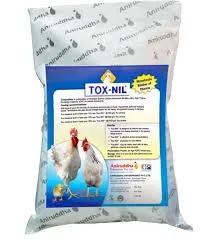
Noy . 27, 2024 06:45 Back to list
Interferon Tau Production and Its Leading Manufacturers in Biotech Industry
Interferon Tau Manufacturers A Comprehensive Overview
Interferon tau (IFNT) is a type I interferon primarily produced by trophectoderm cells of the early conceptus in ruminants, playing a crucial role in establishing and maintaining pregnancy. Its main function is to signal the maternal endometrium to prevent luteolysis, thereby ensuring that the corpus luteum remains functional for the duration of pregnancy. This unique biological role places IFNT at the forefront of reproductive biotechnology and medicine, prompting the development of various manufacturing processes to produce this cytokine for research and therapeutic purposes.
Interferon tau is gaining traction not only in the field of veterinary medicine, especially in livestock breeding, but also holds potential applications in human medicine, including cancer therapy and autoimmune diseases. This multifaceted utility has led to increased interest among manufacturers seeking to produce high-quality IFNT.
Manufacturing Process
The production of interferon tau can generally be classified into two main methods natural extraction from biological sources and recombinant DNA technology. Natural extraction involves isolating IFNT from the uterine secretions of pregnant ruminants, predominantly cows or sheep. However, this method can be limited by biological availability and ethical considerations regarding animal welfare. As a result, many manufacturers are shifting towards recombinant production, wherein microorganisms such as E. coli or yeast are genetically modified to express the IFNT gene.
The recombinant method offers several advantages it allows for higher yield production, reduces variability, and eliminates the need for animal sources, thus addressing some ethical concerns. Moreover, producing IFNT in controlled environments ensures a consistent quality product that is crucial for both research and clinical applications.
Quality Control and Standardization
Given the unstable nature of cytokines, strict quality control measures are essential during the manufacturing process. Reputable interferon tau manufacturers implement rigorous testing protocols to assess purity, potency, and stability. Often, manufacturers adhere to Good Manufacturing Practices (GMP) to ensure that their products meet the stringent regulatory requirements set by authorities such as the FDA and EMA. This standardization is particularly important when IFNT is intended for therapeutic use, as variability could lead to diminished efficacy or increased risk of adverse effects.
interferon tau manufacturer

Market Landscape
The global market for interferon tau is expanding, driven by rising demand in the livestock industry, especially for enhancing reproductive performance and reducing issues related to infertility. Companies specializing in reproductive technologies are increasingly investing in the development of IFNT products, driving innovation in delivery systems and formulations.
Several manufacturers stand out in the field, providing a range of products that include both recombinant IFNT for research purposes and formulations tailored for veterinary use. Companies often package IFNT in various forms, such as lyophilized powders for reconstitution or pre-filled syringes for ease of administration. This versatility allows practitioners in the fields of veterinary and reproductive medicine to choose the most suitable product for their specific needs.
Challenges and Innovations
Despite its significant potential, the manufacturing of interferon tau is not without challenges. As with many biopharmaceuticals, the challenges include ensuring scalability of production processes, maintaining product stability, and managing costs. Furthermore, public perception and regulatory scrutiny regarding the use of recombinant proteins can pose additional hurdles for manufacturers.
To address these challenges, ongoing research and innovation are focused on optimizing production systems and developing more effective delivery methods. Advances in bioprocessing technologies, including the use of cell-free systems and novel expression platforms, may contribute to overcoming scalability issues while reducing production costs.
Conclusion
In summary, the role of interferon tau as a pivotal molecule in reproductive biology, coupled with its emerging therapeutic prospects, illustrates the immense potential of this protein. As the demand for IFNT rises across various sectors, manufacturers are challenged to uphold high standards of production while innovating to meet evolving market needs. By focusing on enhanced quality control, ethical production practices, and sustainable manufacturing processes, the future of interferon tau manufacturing looks promising, with the potential to significantly impact both animal and human health.
-
Top Hemoglobinuria Manufacturer & Supplier Reliable Hemoglobinuria Factory Solutions
NewsJun.24,2025
-
Premium Honeysuckle Products - Leading Honeysuckle Manufacturer & Supplier Factory
NewsJun.10,2025
-
Pulmonary Edema Solutions from Leading Manufacturer & Supplier Reliable Factory Price
NewsJun.10,2025
-
Red Eyes - Leading Red Eyes Manufacturer & Supplier, Premium Quality Factory Price
NewsJun.10,2025
-
Broiler Ascites Syndrome Solutions Top Manufacturers
NewsJun.10,2025
-
Premium Amoxicillin Suppliers Reliable Biomox Mexican Factories
NewsJun.10,2025




